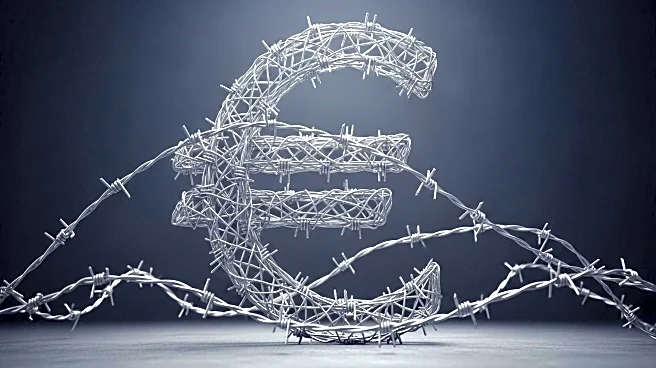What's Happening?
Inflation in Europe rose to an annualized 2.1% in August, exceeding economists' expectations. The increase was slightly above the European Central Bank's target of 2%. The Euro currency fell 0.6% against the U.S. dollar, and the pan-European Stoxx 600 index declined 0.7%. The EU's trade deal with the U.S., signed in July, has removed some tariff uncertainties, but concerns remain over the impact of a 15% import duty on European goods and services.
Why It's Important?
The higher-than-expected inflation rate in Europe is significant as it may influence economic policy decisions and affect market dynamics. The tariff concerns could weigh on economic activity and future inflation readings, impacting European equities and the broader market. Companies like Spotify, Deutsche Bank, and SAP may experience slight impacts due to these economic shifts.
What's Next?
The European Central Bank is expected to maintain its key interest rate at 2% in its upcoming meeting. Economists and market analysts will be closely monitoring inflation trends and the potential effects of tariffs on economic growth. The EU's trade relationship with the U.S. will continue to be a focal point in assessing future economic conditions.










